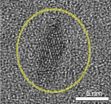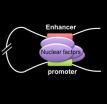(Press-News.org) All nuclear energy and weapons programs should be independently regulated and subject to rigorous peer review, according to three experts on nuclear policy. Their comments and recommendations are published in an article entitled, "A Safer Nuclear Enterprise," in the June 8 issue of the journal Science.
The authors noted that, despite international diplomatic efforts to prevent the proliferation of nuclear weapons and ensure that nuclear material is protected against theft, there is growing apprehension about terrorists acquiring weapons or nuclear material.
"There is growing risk of accidents, mistakes or miscalculations, and of regional wars or nuclear terrorism," wrote Sidney Drell, George P. Shultz and Steven P. Andreasen. "Strong, independent regulatory agencies are not the norm in many countries."
The three authors are leading experts on global nuclear issues, who have also held top policy positions at the White House. Drell, a senior fellow at the Hoover Institution and professor emeritus of theoretical physics at the SLAC National Accelerator Laboratory at Stanford University, served on the President's Intelligence Advisory Board from 1993 to 2001.
Shultz, a distinguished fellow at the Hoover Institution and member of the Shultz-Stephenson Task Force on Energy Policy at Stanford, was U.S. Secretary of State during the Reagan Administration.
Andreasen, a lecturer at the Humphrey School of Public Affairs at the University of Minnesota, was director for defense policy and arms control on the White House National Security Council from 1993 to 2001. He is a consultant to the Nuclear Threat Initiative in Washington, D.C.
"No nation is immune from risks involving nuclear weapons and nuclear power," they wrote. "Since 1945 there have been more than 30 acknowledged serious accidents involving U.S. nuclear weapons. The United States has had an admirable safety record in civil nuclear power since the 1979 Three Mile Island accident, yet some reactors have a short window for restoring power following an accident. The Fukushima disaster [in Japan] demonstrates the urgent need to address this issue."
To reduce the risks of nuclear accidents and terrorism, the authors recommended that every country involved in nuclear energy and weapons development establish a system of independent regulation and peer review.
"States new to the nuclear enterprise may not have effective safeguards to secure nuclear weapons and materials or the capability to safely manage and regulate civil reactors," they noted. Strengthening the United Nations International Atomic Energy Agency and increasing its budget so that it can play a greater role in civil nuclear safety and security would help reduce risks.
"In the United States, the nuclear regulatory system – in particular, the Nuclear Regulatory Commission (NRC) – is credited with setting a high standard for independent regulation of the civil nuclear power sector," they wrote. "But careful attention is required to protect against regulatory capture by vested interests in government and industry; the latter funds a high percentage of the NRC budget."
The authors also urged adoption of U.S.-style of independent peer review.
"Independent experts in the United States, both within and outside the weapons program, review each other, rigorously challenge weapons and systems safety, and communicate these points up and down the line," they wrote. "The Institute of Nuclear Power Operations provides peer review and oversight of the U.S. civil nuclear sector. Its global counterpart, the World Association of Nuclear Operators, should further strengthen its safety operations, in particular its peer-review process. Enhanced capacity to arrange fines could also help states develop the culture of quality needed to achieve a superior safety record."
The authors called for improved dialogue between the military and nuclear energy communities, and greater public awareness and involvement in nuclear issues.
Ultimately, they would like to see a global effort to eliminate all nuclear weaponry. "Progress toward a world free of nuclear weapons will build international trust and cooperation required to address dangers and prevent catastrophes," they wrote.
INFORMATION:
This article was written by Mark Shwartz of the Precourt Institute for Energy at Stanford University.
Related information:
Sidney Drell
http://www.hoover.org/fellows/10241
George P. Shultz
http://www.hoover.org/fellows/10657
Steven P. Andreasen
http://www.hhh.umn.edu/people/sandreasen/index.html
Experts call for strong regulation and peer review of military and civilian nuclear programs
2012-06-08
ELSE PRESS RELEASES FROM THIS DATE:
CheapCarInsurance.net Explains Why You Should Purchase Rental Car Insurance
2012-06-08
When you are planning a vacation or a trip and you need to rent a car, one of the most important things that you should consider is whether or not you need to buy rental car insurance. When you search for a car rental company online or in person, most salespeople will tell you that you need insurance, while most web pages will tell you that you do not need it. This couldn't be further from the truth. In reality, purchasing rental car insurance for a few extra dollars per day may be one of the most intelligent things that a person can do for themselves.
CheapCarInsurance.net ...
CU-Boulder physicists use ultrafast lasers to create first tabletop X-ray device
2012-06-08
An international research team led by the University of Colorado Boulder has generated the first laser-like beams of X-rays from a tabletop device, paving the way for major advances in many fields including medicine, biology and nanotechnology development.
For half a century, scientists have been trying to figure out how to build a cost-effective and reasonably sized X-ray laser that could, among other things, provide super-high-resolution imaging, according to Henry Kapteyn, a CU-Boulder physics professor and fellow at JILA, a joint institute of CU-Boulder and the National ...
New brain target for appetite control identified
2012-06-08
New York, NY (June 7, 2012) — Researchers at Columbia University Medical Center (CUMC) have identified a brain receptor that appears to play a central role in regulating appetite. The findings, published today in the online edition of Cell, could lead to new drugs for preventing or treating obesity.
"We've identified a receptor that is intimately involved in regulating food intake," said study leader Domenico Accili, MD, professor of Medicine at CUMC. "What is especially encouraging is that this receptor is belongs to a class of receptors that turn out to be good targets ...
New twist on old chemical process could boost energy efficiency
2012-06-08
Chemical reactions on the surface of metal oxides, such as titanium dioxide and zinc oxide, are important for applications such as solar cells that convert the sun's energy to electricity. Now University of Washington scientists have found that a previously unappreciated aspect of those reactions could be key in developing more efficient energy systems.
Such systems could include, for example, solar cells that would produce more electricity from the sun's rays, or hydrogen fuel cells efficient enough for use in automobiles, said James Mayer, a UW chemistry professor.
"As ...
Parasitic plants 'steal' genes from their hosts
2012-06-08
New research published today in BioMed Central's open access journal BMC Genomics reveals that the Malaysian parasitic plant Rafflesia cantleyi, with its 50cm diameter flowers, has 'stolen' genes from its host Tetrastigma rafflesiae. Analysis of these genes shows that their functions range from respiration to metabolism, and that some of them have even replaced the parasites own gene activity.
Vertical gene transfer is that between parents and their offspring, while horizontal gene transfer is the movement of genes between two different organisms. Bacteria use horizontal ...
Engineered robot interacts with live fish
2012-06-08
A bioinspired robot has provided the first experimental evidence that live zebrafish can be influenced by engineered robots.
Results published today, 8 June, in IOP Publishing's journal Bioinspiration and Biomimetics, provide a stepping stone on the path to using autonomous robots in an open environment to monitor and control fish behaviour.
In the future, water-based robots could potentially contribute to the protection of endangered animals and the control of pest species.
The robot, created by researchers from Polytechnic Institute of New York University and ...
Manipulating chromatin loops to regulate genes may offer future treatments for blood diseases
2012-06-08
In exploring how proteins interact with crucial DNA sequences to regulate gene activity, researchers have shed light on key biological events that may eventually be manipulated to provide new disease treatments.
Within a cell's nucleus, regulatory elements in DNA called promoters and enhancers communicate with each other in carrying out gene activity, often over large genomic distances, hundreds of thousands of chemical bases apart from each other in chromosomes. As these elements physically contact each other, the intervening DNA sequences bend into loops made of chromatin ...
Immune system 'circuitry' that kills malaria in mosquitoes identified
2012-06-08
Researchers at the Johns Hopkins Malaria Research Institute have, for the first time, determined the function of a series proteins within the mosquito that transduce a signal that enables the mosquito to fight off infection from the parasite that causes malaria in humans. Together, these proteins are known as immune deficiency (Imd) pathway signal transducing factors, are analogous to an electrical circuit. As each factor is switched on or off it triggers or inhibits the next, finally leading to the launch of an immune response against the malaria parasite. The study was ...
Pre-existing problems
2012-06-08
In a critical step that may lead to more effective HIV treatments, Harvard scientists have found that, in a small number of HIV patients, pre-existing mutations in the virus can cause it to develop resistance to the drugs used to slow the progression of the disease.
The finding is particularly important because, while researchers have long known HIV can develop resistance to some drugs, it wasn't understood whether the virus relied on pre-existing mutations to develop the resistance, or if it has to wait for those mutations to occur. By shedding new light on how resistance ...
Should spinal manipulation for neck pain be abandoned?
2012-06-08
The effectiveness of spinal manipulation divides medical opinion. On bmj.com today, experts debate whether spinal manipulation for neck pain should be abandoned.
Spinal manipulation is a technique that involves the application of various types of thrusts to the lumbar spine (lower back) or cervical spine (neck) to reduce back pain, neck pain and other musculoskeletal conditions.
Neil O'Connell and colleagues argue that cervical spine manipulation "may carry the potential for serious neurovascular complications" and that the technique is "unnecessary and inadvisable." ...



